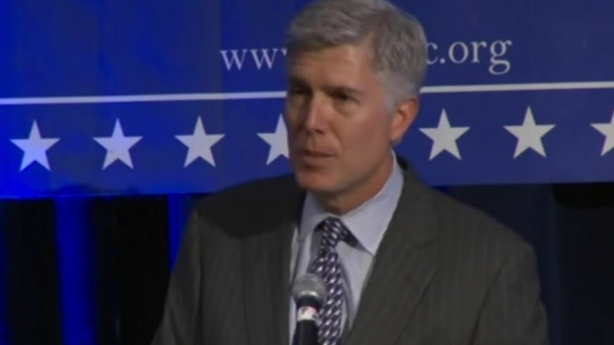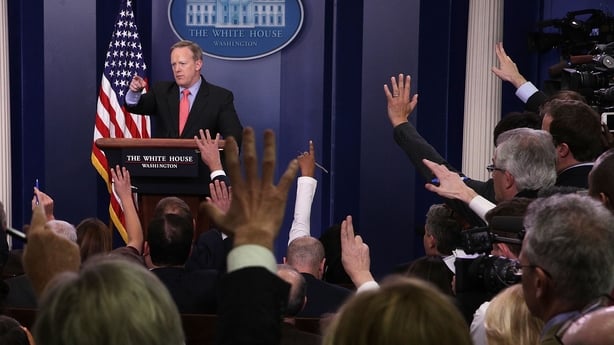US President Donald Trump will later tonight unveil his pick for the Supreme Court, a crucial appointment that could tilt the bench to conservatives on deeply divisive issues such as abortion and gun control.
Mr Trump's choice aims to fill a vacancy left by the sudden death of conservative justice Antonin Scalia in February 2016, which left the highest US court with four conservative and four liberal justices.
The Republican president will announce his "very big decision" at 1am Irish time at the White House.
He has already assured Americans that his chosen candidate is "unbelievably highly respected."
CNN reported that the two judges considered top finalists for the nomination - Neil Gorsuch and Thomas Hardiman - were being brought to Washington ahead of the announcement.
Mr Gorsuch, 49 - tapped by CNN as the frontrunner - is an appellate court judge considered an ideological match to Mr Scalia and takes a broad view of religious freedom.

Mr Hardiman, 51, is an appellate court judge with a record as a defender of gun rights, police powers and the rights of local governments to display the Ten Commandments.
The third name widely circulating in connection with the nomination was William Pryor, 54, an appellate court judge and former Alabama attorney general seen as an abortion rights opponent.
Mr Trump's Supreme Court pick, unveiled during prime television viewing, sets the stage for a bruising battle with opposition Democrats.
US Supreme Court: ultimate arbiter of US law
The Democrats, who are in a minority in both chambers of Congress, are still smarting from the Republicans' refusal to consider - much less vote on - former president Barack Obama's nominee for the same Supreme Court seat.
And although Republicans hold 52 seats in the Senate they need 60 to confirm a nominee, which means Mr Trump's choice must be someone capable of winning some Democratic votes.
Abortion, gay marriage and gun control are just some of the controversial issues on which the Supreme Court is the final arbiter.
Its members are confirmed by the Senate and serve life terms.
Tooth and nail
Given the advanced age of several sitting justices, Mr Trump could potentially make several appointments during his term, shaping the court's direction for a generation.
Once confirmed, however, justices enjoy independence and some have proved politically unpredictable, which sharply raises the stakes of the Senate confirmation process.

Mr Trump has said he wants a candidate who opposes abortion and firmly backs the right to own guns.
In a presidential debate in October, Mr Trump said his Supreme Court picks would "automatically" lead to overturning Roe v. Wade, the emblematic 1973 ruling that legalised abortion.
Mr Trump initially said he would announce his pick on Thursday, but moved the date up amid a raging controversy over his order to temporarily bar refugees and travellers from seven predominantly Muslim countries from entering the country.
Four federal judges issued temporary orders blocking deportations of people detained at US airports, embroiling the fledgling administration in its first major legal challenges.
Advocates vow to take the fight to the Supreme Court.
Senate minority leader Chuck Schumer has vowed to fight "tooth and nail" if Mr Trump nominates someone unacceptable to Democrats, an outcome considered likely.
"That just shows you that it's all about politics, it's not about qualification," said White House spokesman Sean Spicer.

"The president has a right to have his nominees taken up."
Mr Trump's predecessor Barack Obama had chosen the politically moderate judge Merrick Garland to fill the seat left vacant by Mr Scalia's death, in a bid to win over Republicans, but they refused to even consider him.
Mr Garland has since returned to his old job as chief judge of the US Court of Appeals for the District of Columbia Circuit in Washington.

